6 items not to store in your kitchen cabinets, according to home organizers
Stop these items from creeping into kitchen cabinets for a more streamlined and functional space
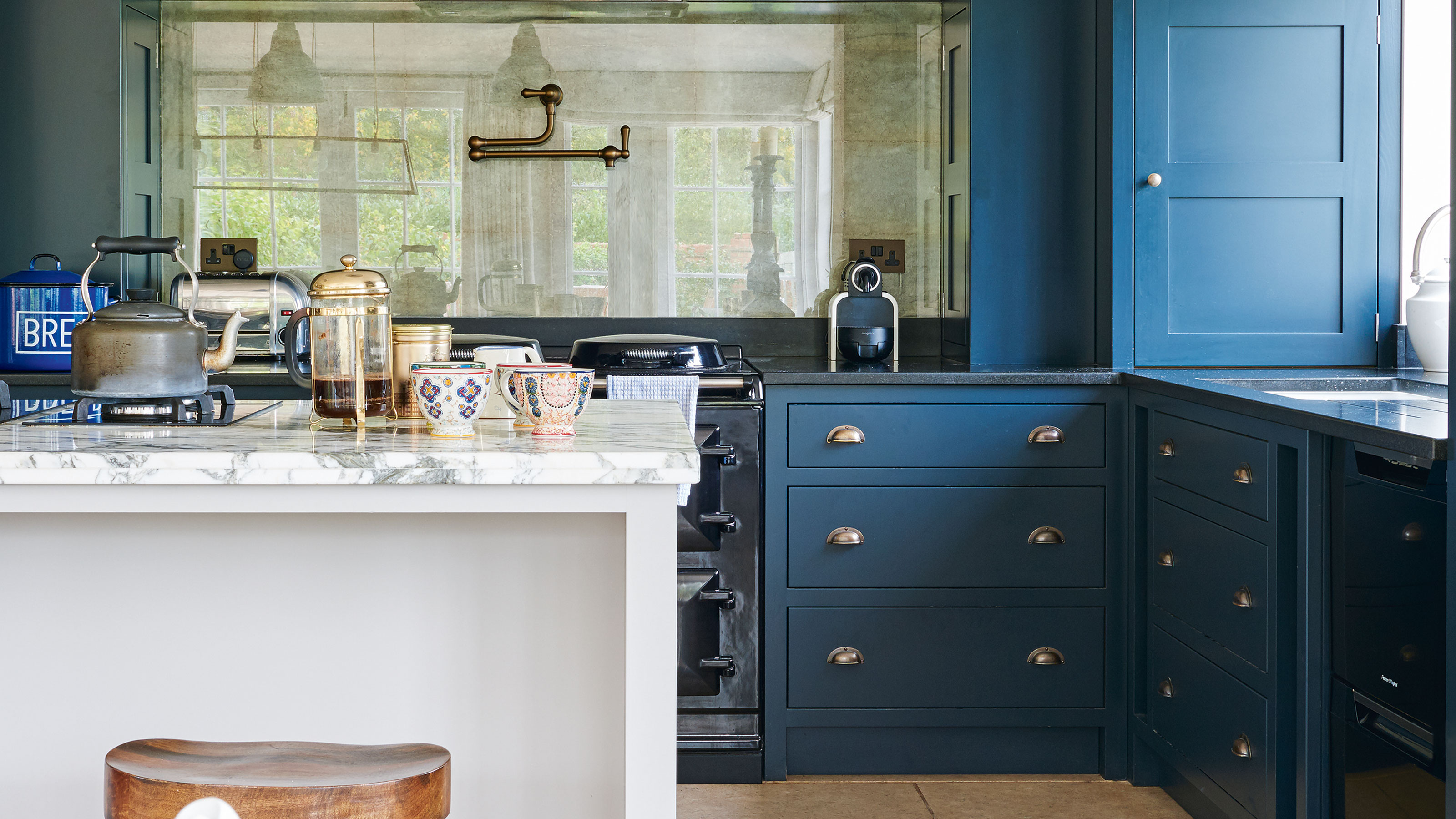

Despite the many brilliant storage products out there to help us keep things neat, our kitchen cabinets easily become disorganized, which makes cooking stressful. Ultimately, the best way to organize kitchen cabinets is to keep clutter to a minimum and ensure items are stored in logical locations while bearing in mind how often you actually use them.
We asked home organizers for the items not to store in kitchen cabinets for a functional and stress-free kitchen where everything has its place.
If you want to kick-start a quick clear-out there are some easy things you can get rid of in your kitchen cabinets right now. Keep scrolling for the things that simply should not go in your kitchen cabinet in the first place.
Items not to store in kitchen cabinets
When re-evaluating kitchen storage, you may like to follow professional organizer Amelie Saint-Jacques' advice and reserve kitchen cabinet space for only three types of items: those you use to eat (plates, glasses, cutlery); those you use to prepare food (mixing bowls, pots and pans, cutting boards); and food, if you don't have a pantry. It's always wise to keep heavier appliances, pots and pans in lower cabinets for safety.
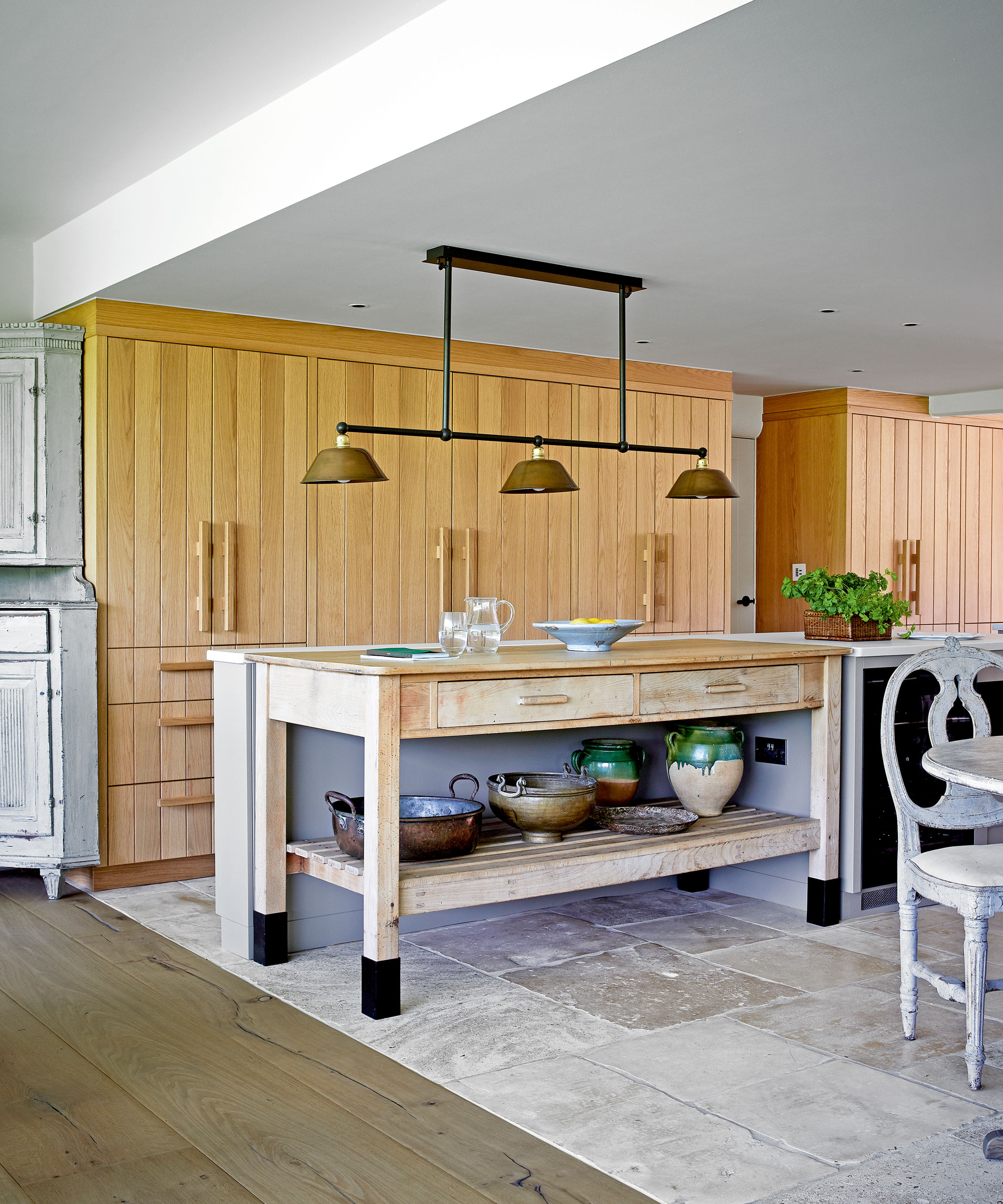
1. Non-kitchen items
Chances are a few items have made their way into your kitchen cabinets despite the fact they simply do not belong in the kitchen. From her own experience as a professional organizer, Amelie Saint-Jacques says far too many of us use our kitchen for non-kitchen items – things like crafting supplies, home office equipment, or miscellaneous papers.
'This is understandable if you don't have a dedicated home office, for example, but the problem is when those items spill out into the kitchen and get in your way when you are using that room for its designated purpose,' says Amelie.
'A pile of papers on the counter will only attract more clutter, and it is not a good home organizing system for dealing with the papers. It can work if there's a dedicated area, such as a family command center, to corral the items and if the papers stay organized and visible within it.
'Otherwise, the kitchen must serve its purpose as a functional place to prepare food.'
2. Bug killer
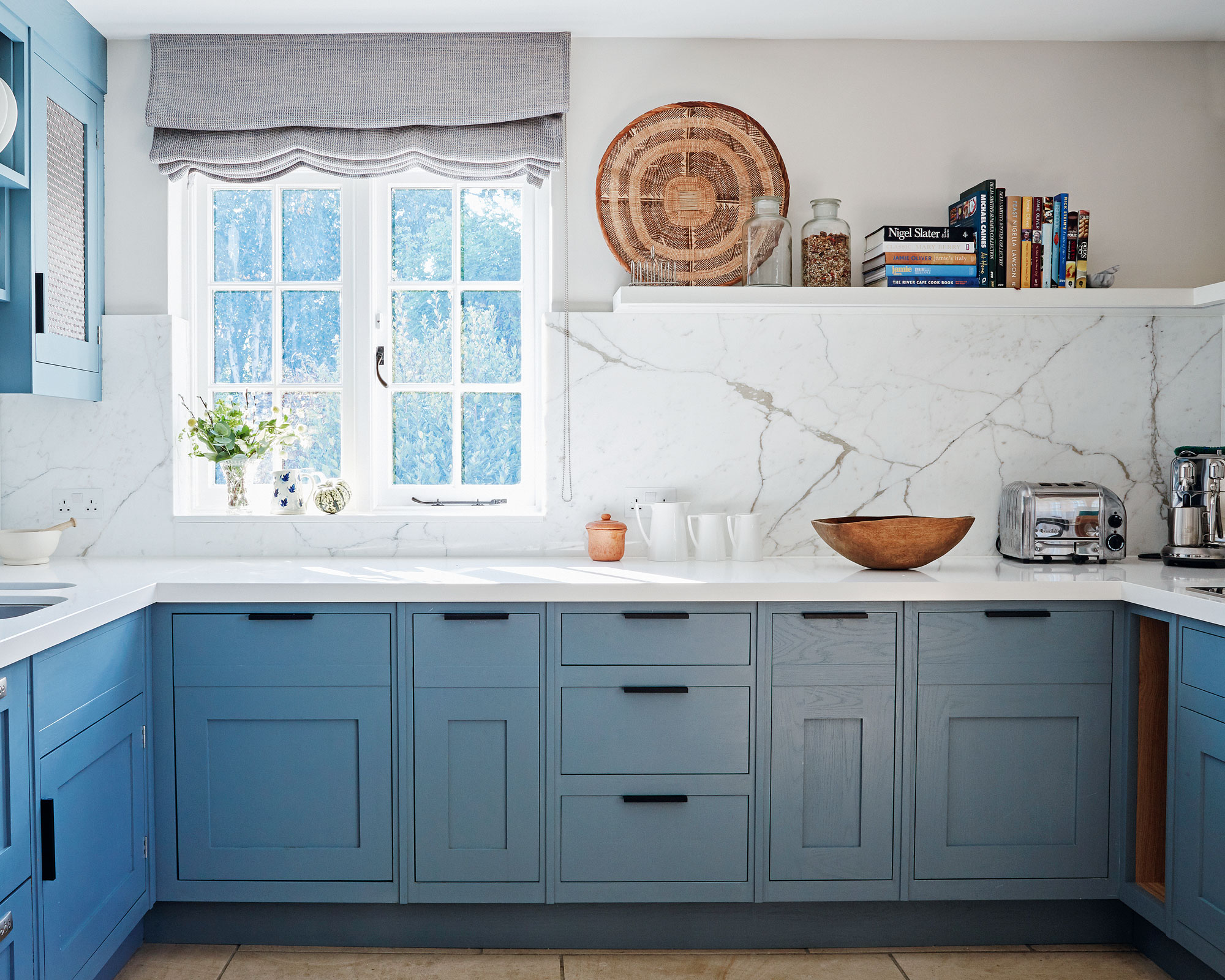
Kim Jones, a home organizer from Lock & Key Home says that while kitchen cabinets may seem a convenient location for bug killers, it's better stored away elsewhere. She says it's an item not to store under the kitchen sink because here it can be easily accessible to children and dogs.
'We recommend keeping these products higher in an area with less traffic, such as a garage, or basement. Also, do you really want bug-killer chemicals in the area where you prep and cook meals?' Kim asks.
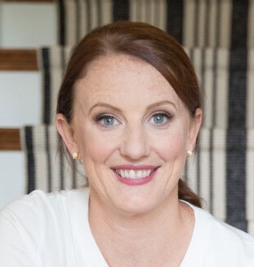
Kim Jones is a home organizer who helps overwhelmed, busy professionals and families create an organized space with simple strategies. Lock & Key Home organizing gives clients customized systems to help them maintain a more organized home long-term.
3. Items sensitive to changes in temperature
Charlie Victor from My Modern Cave advises against storing anything in kitchen cabinetry that might be affected by changes in temperature. 'Things like candles, spices, and certain types of oils can be affected by changes in temperature and may not last as long if stored in a warm or humid environment,' he says. Store spices and oils away from the stove where possible so they aren't exposed to extreme fluctuations.

Charlie Victor is a go-to source for things including, home improvement, DIY projects, and backyard makeovers. Based in Florida, he has been transforming homes and businesses across the state since 1992.
4. Cleaning products
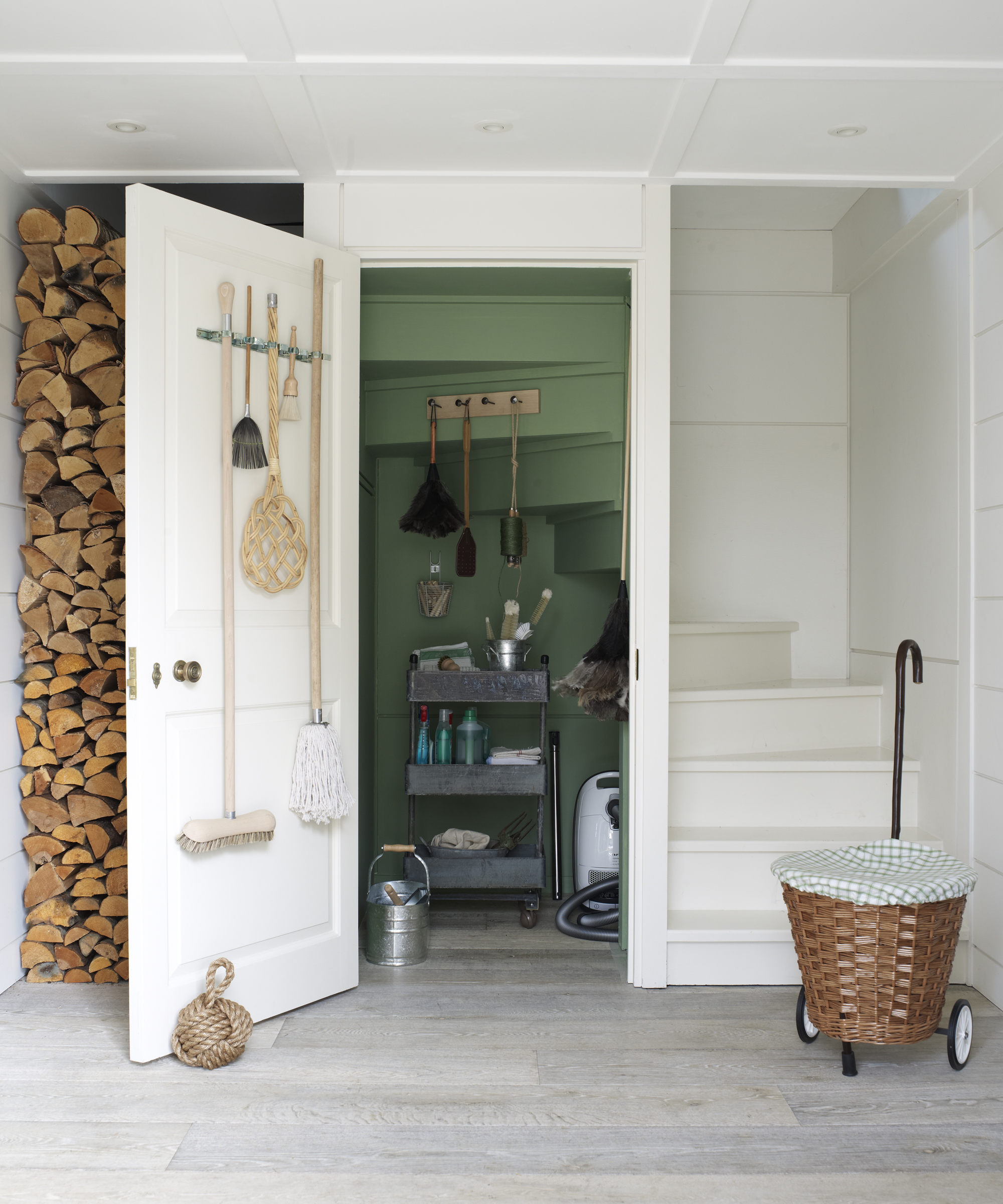
According to Jennifer Smith, a home organizer at Urban Home Corner, kitchen cabinets are not the safest place for cleaning products as they can be harmful if ingested or spilled. She even suggests putting them in a locked cabinet or closet.
5. Plastic or paper bags
Whether they're paper or plastic, shopping bags clutter up kitchen cabinets like nothing else. 'They usually end up shoved in a space they don’t belong,' says decluttering expert Denise from Deecluttered. 'Keep these items organized in another area, like the laundry room or even your car.' She says you can also use a bag organizer, at Walmart, for under the sink.
6. Unnecessary clutter
Finally, items that you tend not to use day to day should be cleared out and stored elsewhere. This could be cups and mugs that are sentimental but don't actually tend to be used for your morning coffee or a baking tray that only comes out at Thanksgiving.
Professional organizer Gina Hardin from Orgnze.com recommends decluttering kitchen cabinets to avoid losing track of what you have and to prevent items from getting broken and dusty at the back of a cramped cabinet.
'Do not overstuff your cabinets. If you are ready to party at a moment's notice (and shouldn't we all be?) keep a few things handy like a serving platter,' she says.
FAQs
What should you leave out on the kitchen counter?
The items you use on a daily basis, such as a coffee maker or toaster are best left out on the counter, says John Ward, a professional organizer and chief operations officer at Mold Busters. 'Other items, such as cutting boards or mixing bowls, can be stored in lower cabinets or in drawers,' says John.
Sign up to the Homes & Gardens newsletter
Design expertise in your inbox – from inspiring decorating ideas and beautiful celebrity homes to practical gardening advice and shopping round-ups.

Millie Hurst is a freelance lifestyle writer with over six years of experience in digital journalism. Having previously worked as Solved Section Editor at Homes & Gardens and Senior SEO Editor at News UK in London and New York, Millie has written for an array of homes brands including Livingetc and Real Homes and was formerly Senior Content Editor at Ideal Home. She has written and edited countless features on home organization, decluttering and interior design and always hopes to inspire readers with new ways to enjoy their homes. She loves to weave nature-inspired decor and nods to time spent in Italy into her own home.
-
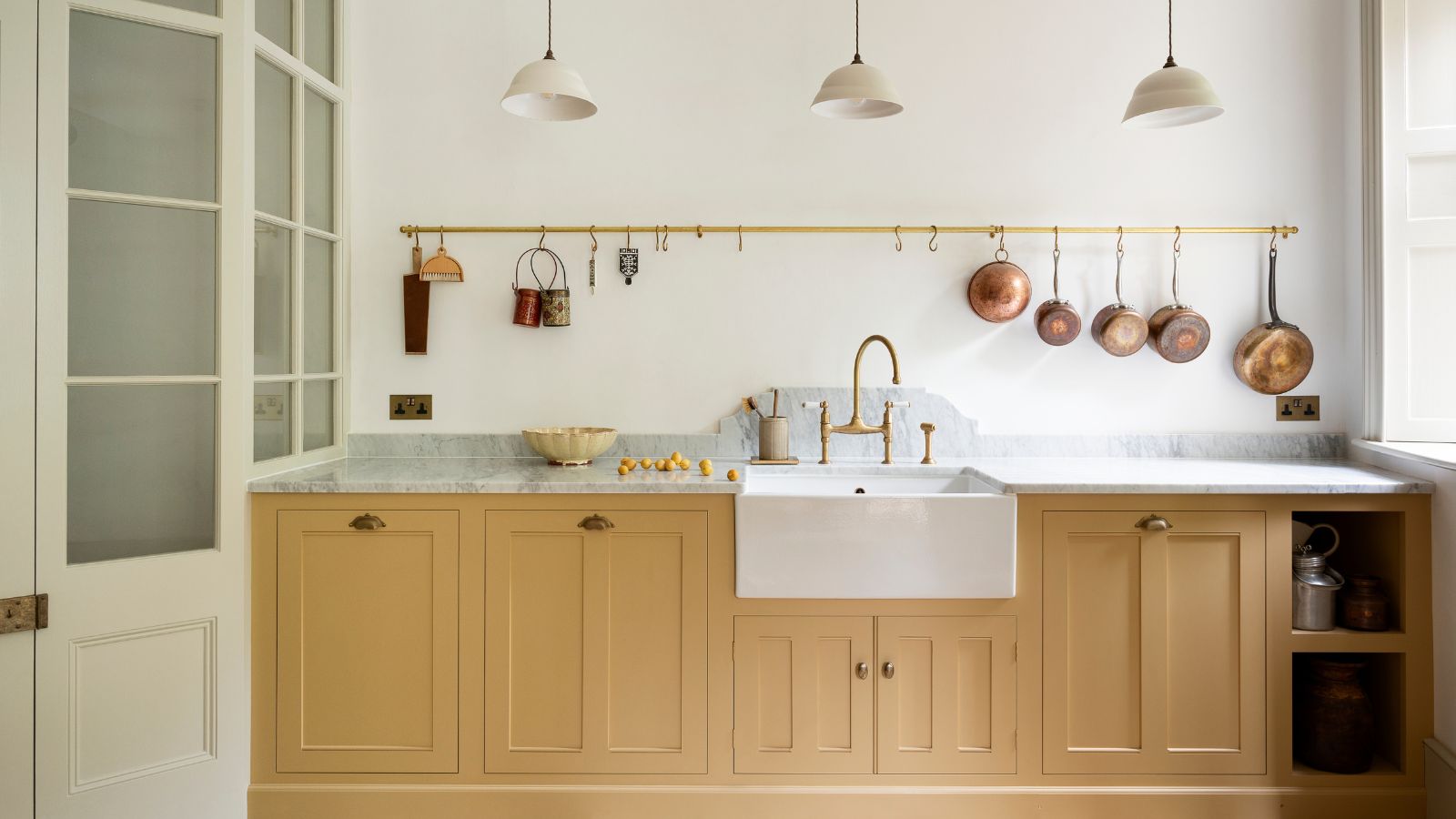 What colors go best with butter yellow? 8 equally delicious shades to pair with spring's hottest color trend
What colors go best with butter yellow? 8 equally delicious shades to pair with spring's hottest color trendInspired to elevate your home this spring with chic pale yellows? Here are the best colors to complete your scheme
By Emily Moorman
-
 Sarah Michelle Gellar's entryway is tranquil and elegant thanks to white and wood accents – her neutral style is replicable from $33
Sarah Michelle Gellar's entryway is tranquil and elegant thanks to white and wood accents – her neutral style is replicable from $33The actress's entryway features a wood console table, wood floors, and crisp, white paint for a warm and inviting atmosphere
By Hannah Ziegler